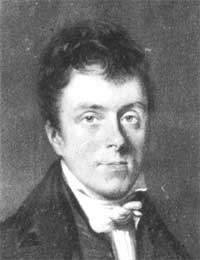Readings:
Isaiah 49:1-7
Psalm 98
Romans 1:8-15
John 4:21-26Preface of a Saint (2)
[Common of a Missionary]
[For the Mission of the Church]
PRAYER (traditional language)
O God of the nations, who gave to thy servant Henry Martyn a longing to share thy Gospel with all peoples; Inspire the church in our own day, we beseech thee, with that same desire, that we may be eager to commit both life and talents to thee who didst bestow them; through Jesus Christ our Lord, who liveth and reigneth with thee and the Holy Ghost, one God, for ever and ever. Amen.
PRAYER (contemporary language)
O God of the nations, who gave to your servant Henry Martyn a longing to share your Gospel with all peoples; Inspire the church in our own day with that said desire, that we may be eager to commit both life and talents to you who gave them; through Jesus Christ our Lord, who lives and reigns with you and the Holy Spirit, one God, for ever and ever. Amen.
Lessons revised at General Convention 2024.
Return to Lectionary Home Page
Webmaster: Charles Wohlers
Last updated: 17 August 2024
HENRY MARTYN
MISSIONARY AND TRANSLATOR (19 OCT 1812)
 Henry
Martyn was born in 1781, studied at Cambridge, and became Senior Wrangler.
(That is, he won the Cambridge University annual mathematics problem-solving
competition, and was accordingly recognized as the University's best undergraduate
mathematician. "Wrangling" is a British University expression
for solving mathematical problems.) He had, moreover, a considerable facility
in languages. Under the encouragement of Charles Simeon (see 12 Nov 1836),
he abandoned his intention of going into law and instead went to India
as a chaplain in 1806. In the six remaining years of his life, he translated
the New Testament into Hindi and Persian, revised an Arabic translation
of the New Testament, and translated the Psalter into Persian and the
Prayer Book into Hindi. In 1811 he left India for Persia, hoping to do
further translations and to improve his existing ones, there and in Arabia.
But travel in those days was not a healthy occupation, and he fell ill
and eventually died at Tokat on October 16, 1812. (The American Calendar
commemorates him on 19 October.) He was buried by the Armenian church
there, with the honors ordinarily reserved for one of their own bishops.
His
diary (vol. 1, vol. 2) has been called "one of the most precious treasures of
Anglican devotion."
Henry
Martyn was born in 1781, studied at Cambridge, and became Senior Wrangler.
(That is, he won the Cambridge University annual mathematics problem-solving
competition, and was accordingly recognized as the University's best undergraduate
mathematician. "Wrangling" is a British University expression
for solving mathematical problems.) He had, moreover, a considerable facility
in languages. Under the encouragement of Charles Simeon (see 12 Nov 1836),
he abandoned his intention of going into law and instead went to India
as a chaplain in 1806. In the six remaining years of his life, he translated
the New Testament into Hindi and Persian, revised an Arabic translation
of the New Testament, and translated the Psalter into Persian and the
Prayer Book into Hindi. In 1811 he left India for Persia, hoping to do
further translations and to improve his existing ones, there and in Arabia.
But travel in those days was not a healthy occupation, and he fell ill
and eventually died at Tokat on October 16, 1812. (The American Calendar
commemorates him on 19 October.) He was buried by the Armenian church
there, with the honors ordinarily reserved for one of their own bishops.
His
diary (vol. 1, vol. 2) has been called "one of the most precious treasures of
Anglican devotion."
by James Kiefer